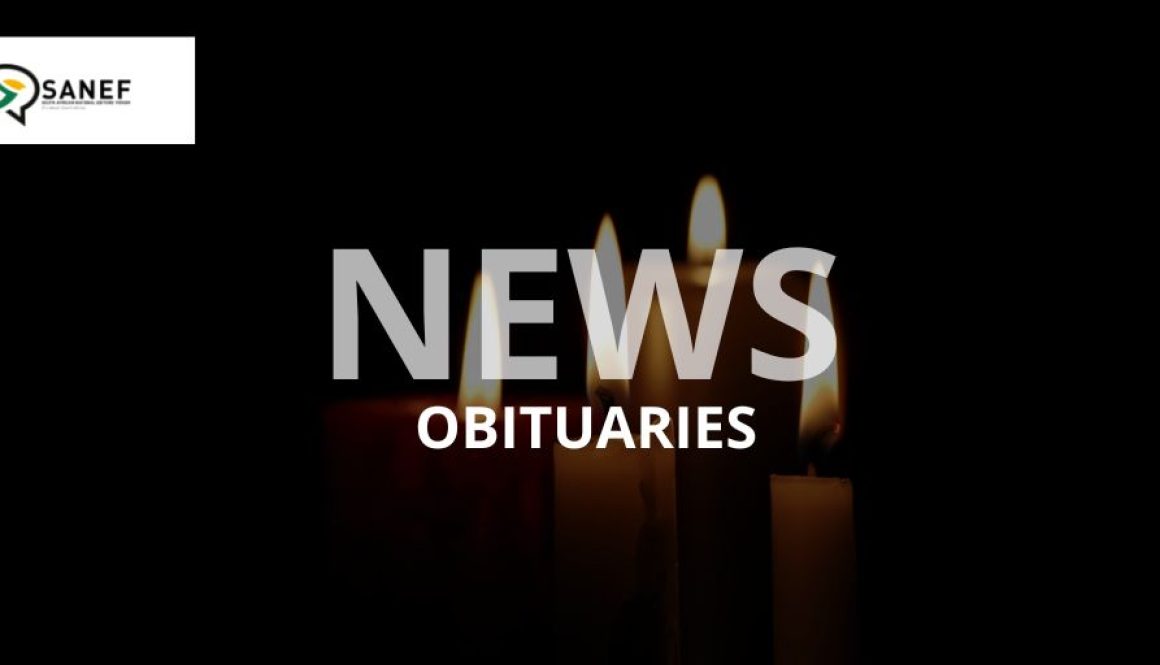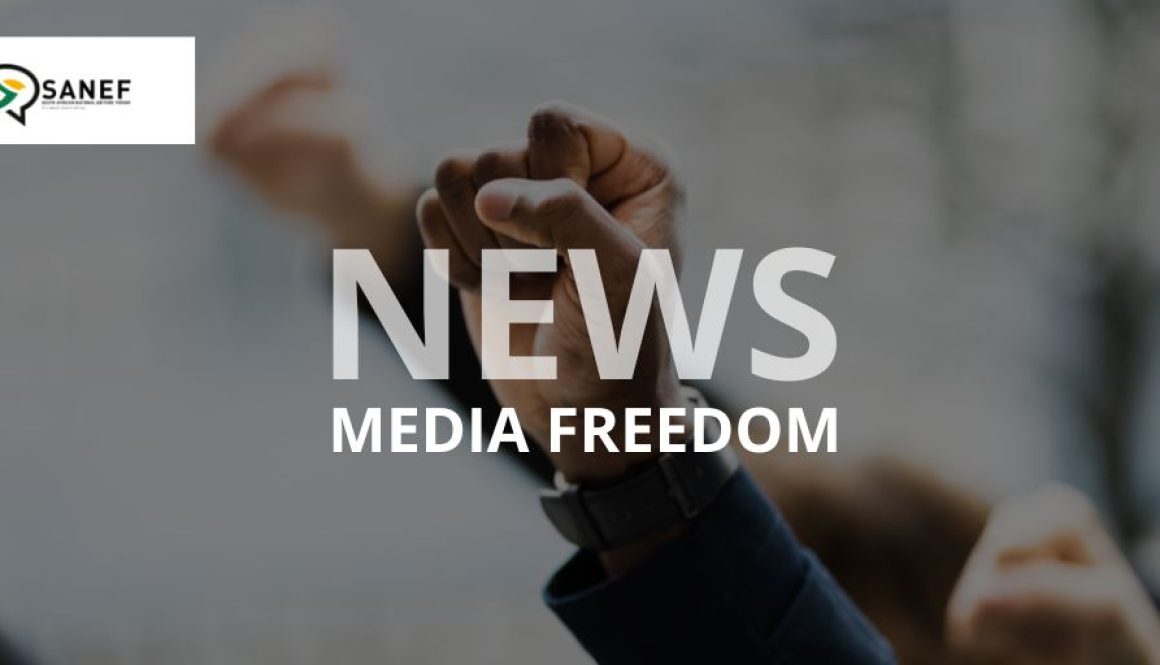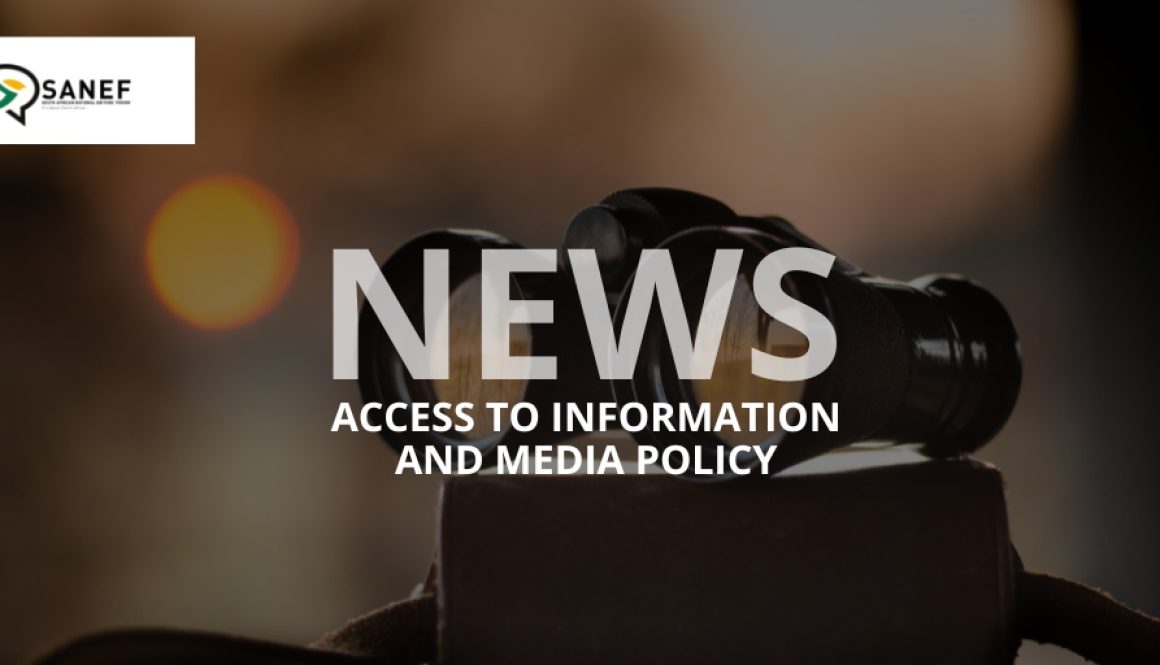SANEF Mourns The Death Of Veteran Journalist Rex Gibson
The South African National Editors’ Forum (SANEF) mourns on 14 January 2020 the death of veteran journalist, Rex Gibson.
Gibson, who was the last editor of respected South African newspaper, The Rand Daily Mail and who was at the coalface of the Apartheid era’s most vicious censorship laws died yesterday.
His daughter Kerry shared the news on Facebook this morning “Our beloved father died peacefully last night with all his daughters and his partner, Pat, by his side. What a grand life he lived.”
Professor Anton Harber, an adjunct professor of journalism at the University of the Witwatersrand, described Gibson as a “solid, brave and principled journalist who stood firm under difficult circumstances”.
“He did all he could to save the Rand Daily Mail. He fought a great fight against the establishment. He did what he had to do, and, in a sense, it was unfortunate that the newspaper was dying, and mainstream media was in a low place.”
“I respected him. He always asked for more from journalists in the newsroom,” said Harber who worked with Gibson.
The Financial Mail reported in 2010 that Gibson remained “one of the few editors to face charges under the infamous Official Secrets Act, and also defended himself and his paper against the much rarer charge of criminal defamation”.
After retiring from journalism in 1992, Gibson moved to Hermanus and published a memoir, which provided his perspective of The RDM spanning the late 1950s to the closure of the newspaper in 1985.
He was also the founder-editor of Mining News, the editor of the Sunday Express and deputy editor of The Star.
Gibson was the recipient of the Joint International Editor of Year award Atlas World Review and the Pringle award South Africa in 1979. He was also a respected member of the International Rand and Wanderers Press Institute Clubs, since 1967.
SANEF sends its condolences to the families and friends of Mr Gibson. He will be sorely missed.
Political journalist and author, John Matisonn wrote about Gibson:
It is with deep sadness that I heard the news of Rex Gibson’s passing.
Rex was one of the most courageous editors it was my privilege to know and work for. He stood up for his journalists not matter the pressure.
Rex was low key and did some of his proudest work as editor of the small Sunday Express, whose budgets were tiny. Yet on the Sunday Express he took the decision to break the Muldergate story wide open when other editors were still debating what to do. It was his front-page lead headline announcing that the government had secretly paid to start a newspaper, The Citizen, and then lied about it, that started the flood of stories that ultimately brought down President John Vorster. I was in the office the day he took the decision despite the nervousness he and his colleagues felt as a small paper with minimal resources taking on the apartheid state.
I probably had more cause to be grateful for his courage than anyone. He appointed me his parliamentary correspondent and sent me to Cape Town. Within two weeks I was refused accreditation on the grounds that I was a security risk. Rex flew to Cape Town immediately, saw the Speaker and the Minister of Police, Jimmy Kruger, who told him they had evidence about me that would make my journalism unacceptable.
Rex refused to let the government choose his political correspondent. For three years he sent me to parliament even though I was barred entry into the press gallery. He made it clear he would keep me there indefinitely.
Later, when I was charged with refusing to divulge a source in the Muldergate scandal, it was Rex who protected me by ensuring I had legal representation and that he would stand by me when I indicated I would not betray a source to stay out of jail.
His death is a sad loss for the country and for journalism, but South Africans can take pride that his are among the shoulders on whom democratic South Africa’s great investigation journalists and their editors stand as they expose corruption and impropriety by both government and private individuals.
ENDS
Note for Editors: The South African National Editors’ Forum (SANEF) is a non-profit organisation whose members are editors, senior journalists and journalism trainers from all areas of the South African media. We are committed to championing South Africa’s hard-won freedom of expression and promoting quality, ethics and diversity in the South African media. We promote excellence in journalism through fighting for media freedom, writing policy submissions, research, education and training programmes.
For more information contact:
- Hopewell Radebe – SANEF Acting Gauteng Regional Convenor 083 582 1734
- Kate Skinner – SANEF Executive Director – 082 926 6404





